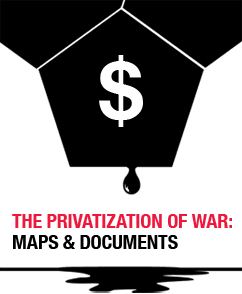Colombian Paramilitaries in Venezuela: One More Destabilizing Factor
»A war of attrition such as that in Nicaragua is much more effective«
Dario Azzellini, the Italian-German political scientist, writer and documentarian, has conducted an in-depth investigation of the phenomenon of paramilitarism in Colombia. In 2003 he published the book “The Privatization of War,” some parts of which have run in “Txalaparta” in Spain and in “Question” in Venezuela.
Recently, Dario Azzellini has dedicated himself to the search for information about Colombian paramilitary penetration in Venezuela, which he confirms has been produced with U.S. aid and whose interests are not those of direct intervention but rather, a “war of attrition” whose goal is “negative demoralization” instead of a “military victory”. Azzellini indicated that one of paramilitarism’s objectives is the taking control of transport, specifically, taxis, thanks to the fact that it is “a privileged and decisive space for constructing an intelligence network.”
In your investigations about the phenomenon of paramilitarism in Venezuela, you assert that it corresponds to a strategy orchestrated by imperialism, where the Colombian army and the Venezuelan oligarchy play a fundamental role. You make comparisons to that played by the Contras in Nicaragua. Has Venezuela reached this level of risk?
I’ll tell you that today we’re not at the level reached in Nicaragua, but without doubt, somewhere in between, and if necessary measures aren’t taken, it could reach that point. The paramilitary penetration began at the border and has extended itself along the entire backbone of the Andes, approaching the North coast, where one finds one of the country’s industrial centers. At any given moment, a war of low intensity could be launched which would take advantage of this corridor in order to attack the strategic industrial zone, and thereby strike a blow at one of the key points of economic development.
The United States, then, wishes to avoid direct intervention, and is betting on a war of low intensity, using these types of groups?
Effectively, yes. A direct intervention by the United States is unthinkable under the present international situation and because it would unify patriotic feeling within the country. A war of attrition, that doesn’t seek a military victory, but rather negative demoralization, is much more effective, in line with what they developed in Nicaragua, which gave such splendid results.
You point out in your investigation that one of the primary objectives of the paramilitaries is the control of transport. Why?
Because it’s a strategic sector, as has been historically proven. For example, in the Chilean case, the halting of transport was decisive in weakening the government of Salvador Allende. The specific case of the taxis is truly significant, for it is one of the privileged spaces where an intelligence network can be built. Keep in mind that for the Sandinistas in Nicaragua and the Zapatistas in Mexico, one of the first cooperatives they created was taxis, with the clear objective of designing their own intelligence network. In Venezuela, the paramilitaries are appropriating this sector bit by bit, including zones within the very capital, Caracas.
You give the impression that Colombian paramilitarism is extending itself more and more throughout the entire country, and that it’s not being efficiently dealt with. What might be the solution for this serious problem?
It’s true that until very recently, the State has not given it the necessary attention, and therefore it has been able to extend itself in a progressive and growing fashion. Now, it appears that the security organizations have begun to take the problem seriously and are beginning to take the first steps. In the first place, the State’s intelligence agencies have to design a serious and rigorous plan to take on the phenomenon in all its dimensions. But that’s not sufficient. It must complement this with “social intelligence” by the organized community, given that this is where the paramilitary groups have installed themselves and are developing their activities. The State and the people should work together to jointly address this serious problem. Once again the concept of “people’s power” is essential here; in this case in the area of security, transferring power to citizens in order to make public policy more effective.
Related Links:























